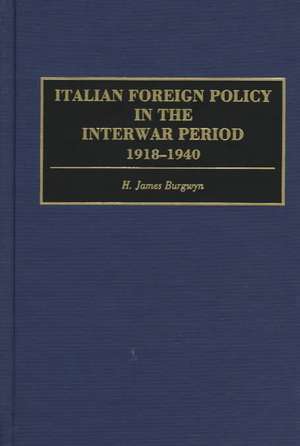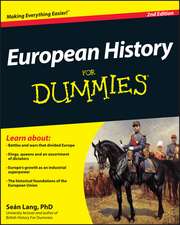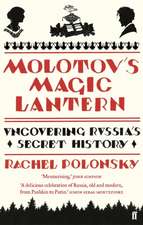Italian Foreign Policy in the Interwar Period: 1918-1940: Praeger Studies of Foreign Policies of the Great Powers
Autor H. James Burgwynen Limba Engleză Hardback – 15 apr 1997 – vârsta până la 17 ani
Preț: 462.79 lei
Preț vechi: 609.54 lei
-24% Nou
Puncte Express: 694
Preț estimativ în valută:
88.57€ • 92.12$ • 73.12£
88.57€ • 92.12$ • 73.12£
Carte tipărită la comandă
Livrare economică 14-28 aprilie
Preluare comenzi: 021 569.72.76
Specificații
ISBN-13: 9780275948771
ISBN-10: 0275948773
Pagini: 240
Dimensiuni: 156 x 235 x 19 mm
Greutate: 0.56 kg
Ediția:New.
Editura: Bloomsbury Publishing
Colecția Praeger
Seria Praeger Studies of Foreign Policies of the Great Powers
Locul publicării:New York, United States
ISBN-10: 0275948773
Pagini: 240
Dimensiuni: 156 x 235 x 19 mm
Greutate: 0.56 kg
Ediția:New.
Editura: Bloomsbury Publishing
Colecția Praeger
Seria Praeger Studies of Foreign Policies of the Great Powers
Locul publicării:New York, United States
Notă biografică
H. JAMES BURGWYN is Professor of History at West Chester University. During a two-year leave of absence 1977-1979, he served as an Assistant Director at the Salzburg Seminar in American Studies in Salzburg, Austria. He is the author of Il Revisionismo Fascista and The Legend of the Mutilated Victory: Italy, the Great War, and the Paris Peace Conference (Greenwood, 1993) and has contributed articles in numerous journals both in America and Italy.
Cuprins
IntroductionItaly at the Paris Peace ConferenceMussolini in PowerItalian RevisionismThe Grandi Era1933: Annus DiabolicusMussolini's Danubian StrategyItaly's Imperialist AdventureThe Italian Empire: A Hollow TriumphThe Dictators ConvergeConsolidation of the AxisWarConclusionNotesBibliographyIndex















